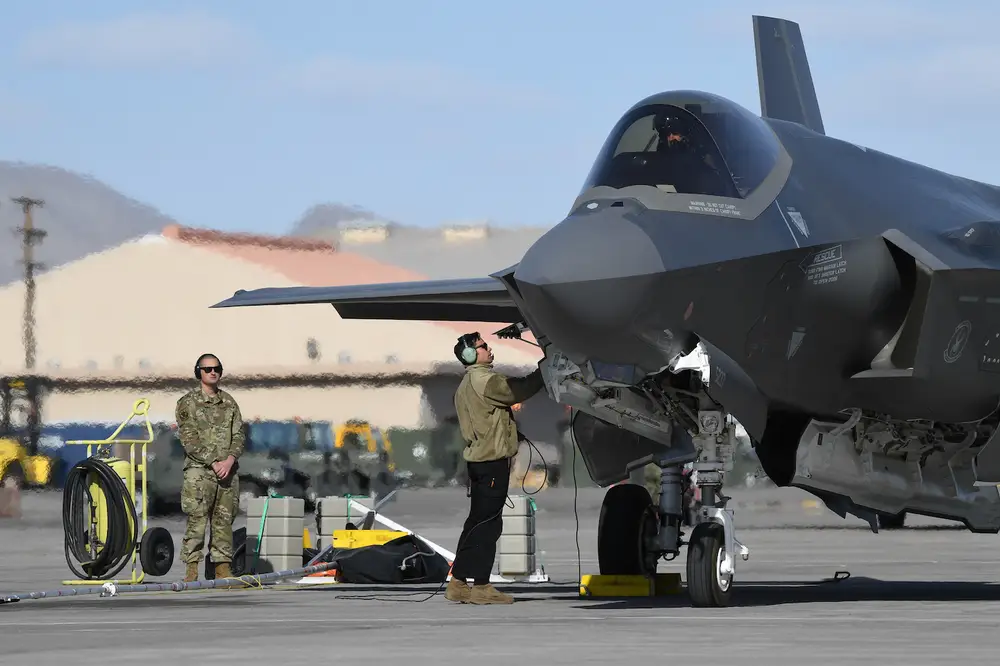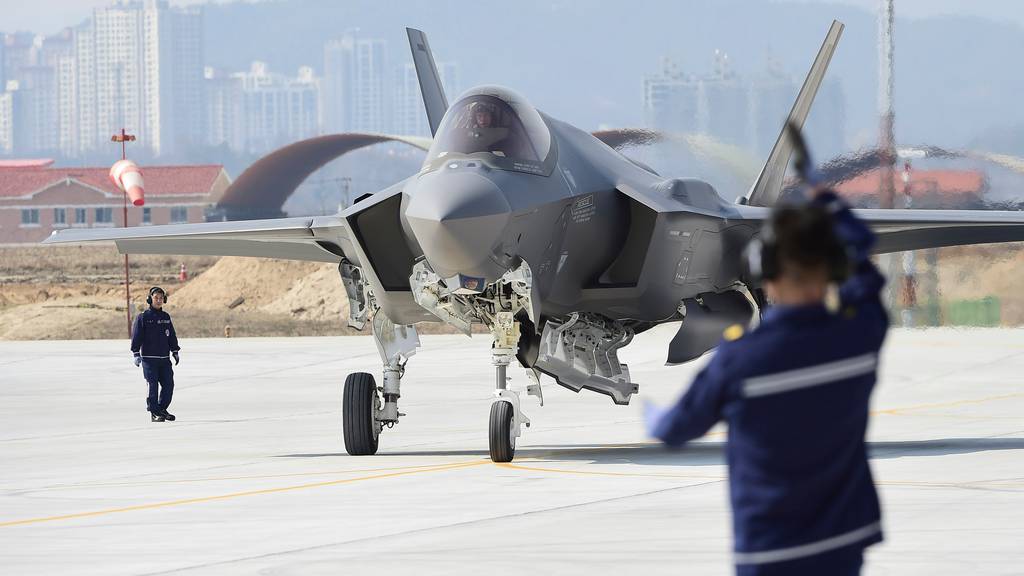Misplaced Flashlight Costs Fifth-Gen F-35 Aircraft Suffer US$4 Million in Damages
According to a report by the United States Air Force, during maintenance work on the F-35 fighter jet belonging to the 56th Fighter Wing on the night of March 15 last year, a handheld flashlight left behind by the crew was inadvertently sucked into the engine, resulting in damage.
(DEFENCE SECURITY ASIA) — A fifth-generation F-35 fighter jet necessitated repair work estimated at US$4 million (RM18 million) due to maintenance crew negligence, as they inadvertently left handheld flashlights in the aircraft’s engine inlet during engine startup.
The incident, which occurred in 2023 at Luke Air Force Base in Arizona, was reported recently by the United States Air Force (USAF).
While conducting maintenance on the F-35 fighter jet belonging to the 56th Fighter Wing on the night of March 15, the crew inadvertently allowed the abandoned flashlight to be sucked into the engine, resulting in damage.
During the maintenance process, three crew members activated the fighter jet’s engine without performing the necessary standard checks to ensure no foreign objects were present before starting the engine.
“It was only when the crew attempted to shut down the engine that they heard an abnormal noise. No maintenance crew members were injured in the incident,” according to a report cited by US defense media.
The investigation team found that the maintenance crews failed to follow the instructions outlined in the “Joint Technical Data” checklist, leading to the oversight of the flashlight.

Due to the crew’s negligence, the flashlight was sucked into the F-35 aircraft’s engine, causing damage to several expensive components.
The damaged components of the aircraft include the second stage rotor, third stage rotor, fifth stage rotor, sixth stage rotor, fuel nozzle, bypass duct, high-pressure compressor, high-pressure turbine, and fan inlet variable vane, according to the report.
The overall cost of the damage suffered by the F-35 fighter jet is estimated at US$3,933,106 (RM18 million).
The investigation report concluded that the technical crews failed to ensure the absence of foreign objects in the engine inlet after inspecting the engine before initiating the F-35 engine start-up.
“The failure to complete the engine checklist resulted in the flashlight being left in the jet’s inlet, leading to it being sucked into the engine when it was ignited.”
In December of the previous year, the South Korean Air Force (ROKAF) announced the termination of service for an F-35A fighter jet that sustained damage after colliding with a bird in an incident that occurred in January of the same year.

According to Yonhap news agency, ROKAF, in an analysis conducted jointly with the fifth-generation fighter jet manufacturer Lockheed Martin, found that a total of 300 components of the aircraft were damaged due to the bird strike incident in January 2022.
The damages included in the airframe, structure, engine, and control and navigation systems.
“Considering the high cost and lengthy duration for repairs, as well as safety concerns, the South Korean Air Force Assessment Committee decided it was better to terminate the aircraft’s service rather than repair it.”
“This plan (to terminate the F-35A service) will be implemented with the approval of the Ministry of Defense,” according to ROKAF, adding that it did not anticipate that the damage suffered by the aircraft was worse than initially thought.
The cost of repairing the fighter jet is estimated to reach 140 billion Won, or approximately US$107.6 million (RM481 million).

The repair cost is significantly higher than the acquisition cost of the aircraft from the United States, which amounted to 110 billion Won or US$85 million (RM382 million).
“Due to the financial gap between the repair cost and the acquisition cost, the South Korean Air Force believes it is better to terminate/dispose of the fifth-generation fighter jet’s service.”
The unfortunate F-35A fighter jet is one of the 40 fifth-generation fighter jets owned by ROKAF, which utilizes conventional runways for takeoff and landing. — DSA
To contact email: lulwabyadah@gmail.com


Comments are closed.